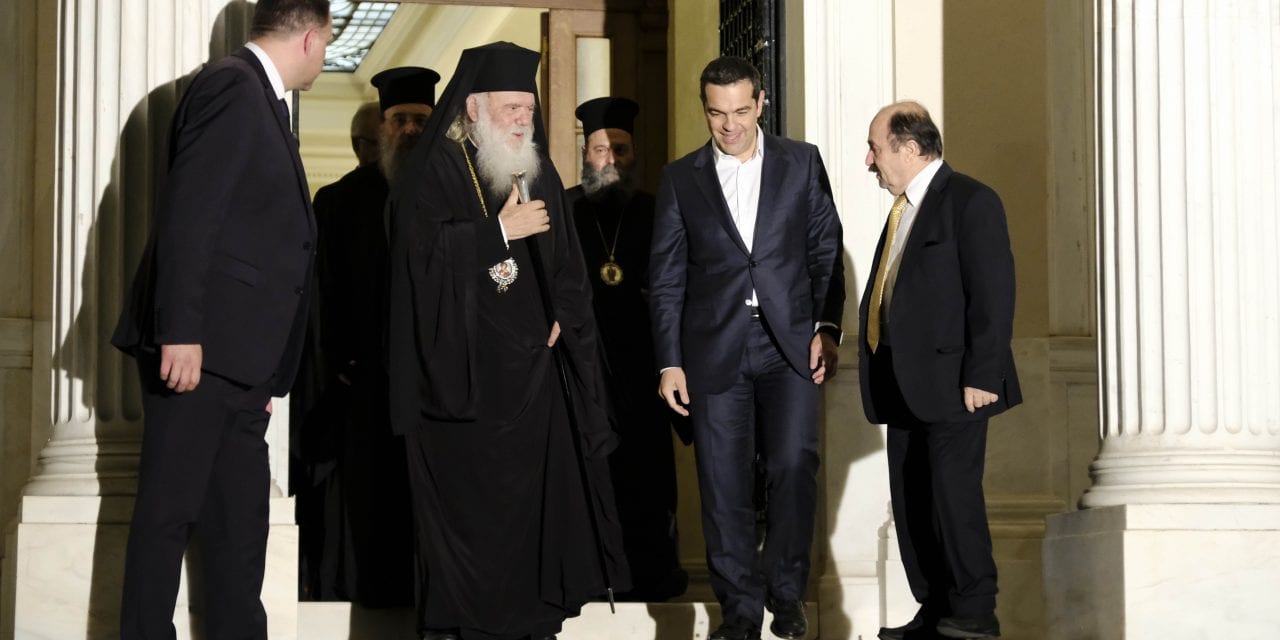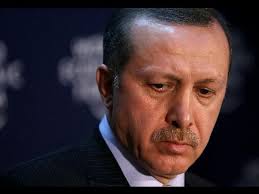The Greek government has struck a tentative agreement with the powerful Orthodox Church of Greece to strip roughly 10,000 clergy and auxiliary staff of the status of civil servants and formally remove the Church from government payrolls. The deal, announced on Nov. 8, 2018, by Prime Minister Alexis Tsipras during a joint televised address with Archbishop Ieronymos, primate of the Orthodox Church of Greece, comes as the left-wing Greek government pushes for constitutional reform to separate church and state, cut government spending, and resolve lingering property and monetary disputes with the Church.
Tracing its origins to the early formative moments of what would become (Eastern) Orthodox Christianity, the Orthodox faith in the territory of Greece was initially governed by the Ecumenical Patriarchate of Constantinople for over a millennia. In 1833, the newly-formed Kingdom of Greece declared the Church in Greece (organized as the Church of Greece, with archdiocese of Athens as its headquarters) to be autocephalous and the Ecumenical Patriarchate formally recognized the full independence of the Church of Greece in 1850.
Successive Greek governments — including two republics, a restoration of the monarchy, and a military dictatorship — have recognized the Greek Orthodox faith as a hallmark of Greek national identity, with the various constitutions of Greece being proclaimed “in the name of the Holy and Consubstantial and Indivisible Trinity” and establishing that “the prevailing religion in Greece is that of the Eastern Orthodox Church of Christ.” In present-day Greece, over 81 to 90 percent of the population are Eastern Orthodox faithful, with the remainder divided among Muslims (roughly two percent), other religious faiths (three percent), and those without a faith (four to 15 percent).
Practically, this close relationship between church and state has made the Church in Greece a extremely potent political force while also formally recognizing Church clergy and employees as civil servants — a status that garners a salary paid by the Greek government. At present, the state pays about 200 million euros (227 million USD) worth of salaries directly to Church employees annually.
The deal agreed by the Prime Minister and the Archbishop will strip Church employees — about 10,000 of them — of their civil servant status while continuing the payment of salaries to clergymen with government funds, albeit indirectly via a state subsidy deposited to a joint fund set up for the purpose. Additionally, the government and the Church would also split revenues derived from properties with ownership disputed between the two institutions equally, with the properties to also be managed by the new joint fund.
The agreement also lays the groundwork for a new political accord between the current left-wing government and the socially conservative Church. In exchange for continued government guaranteeing of Church salaries, the Church has agreed to drop opposition to other proposals in line with the government’s push to officially make the Greek state “religion neutral” and withdraw any claims to property seized by the Greek state since the 1930s.
Observers have questioned if the move will truly lead to a “religion neutral” Greece, especially given that the overwhelming majority of the population is Orthodox and Church rituals permeate everyday life.
While Prime Minister Tsipras hailed the “historic agreement” alongside Archbishop Ieronymos’s statement that the agreement shows “our intention to move a step forward, with mutual respect for one another,” the agreement faces an uphill battle of an approval process in the Cabinet, Greek legislature, and the governing council of the Church of Greece.
After the Association of Greek Clergymen, calling for the “shameful” agreement to be terminated, declared that its members felt “betrayed” over the lack of consultation over the matter, Archbishop Ieronymos issued a follow-up statement claiming that “we do not have an agreement but an intention to reach an agreement” and estimated that Greece’s 82 bishops would deliberate about the matter most likely before Christmas.The proposed separation of church and state in Greece adds another event to the already turbulent year for church-to-church relations in the Eastern Orthodox faith. The Ecumenical Patriarchate of Constantinople — the first-among-equals symbolic leading church of the Eastern Orthodox faith — is currently embroiled in a spat with the Russian Orthodox Church over the granting of independence to the Church in Ukraine. It would appear that Archbishop Ieronymos did not inform Ecumenical Patriarch Bartholomew about the contents of the agreement either, as the Ecumenical Patriarchate expressed its concern over the vagueness of the agreement with the summoning the Consul General of Greece in Istanbul for an explanation regarding the verbal agreement between Tsipras and Ieronymos on Nov. 9.



















